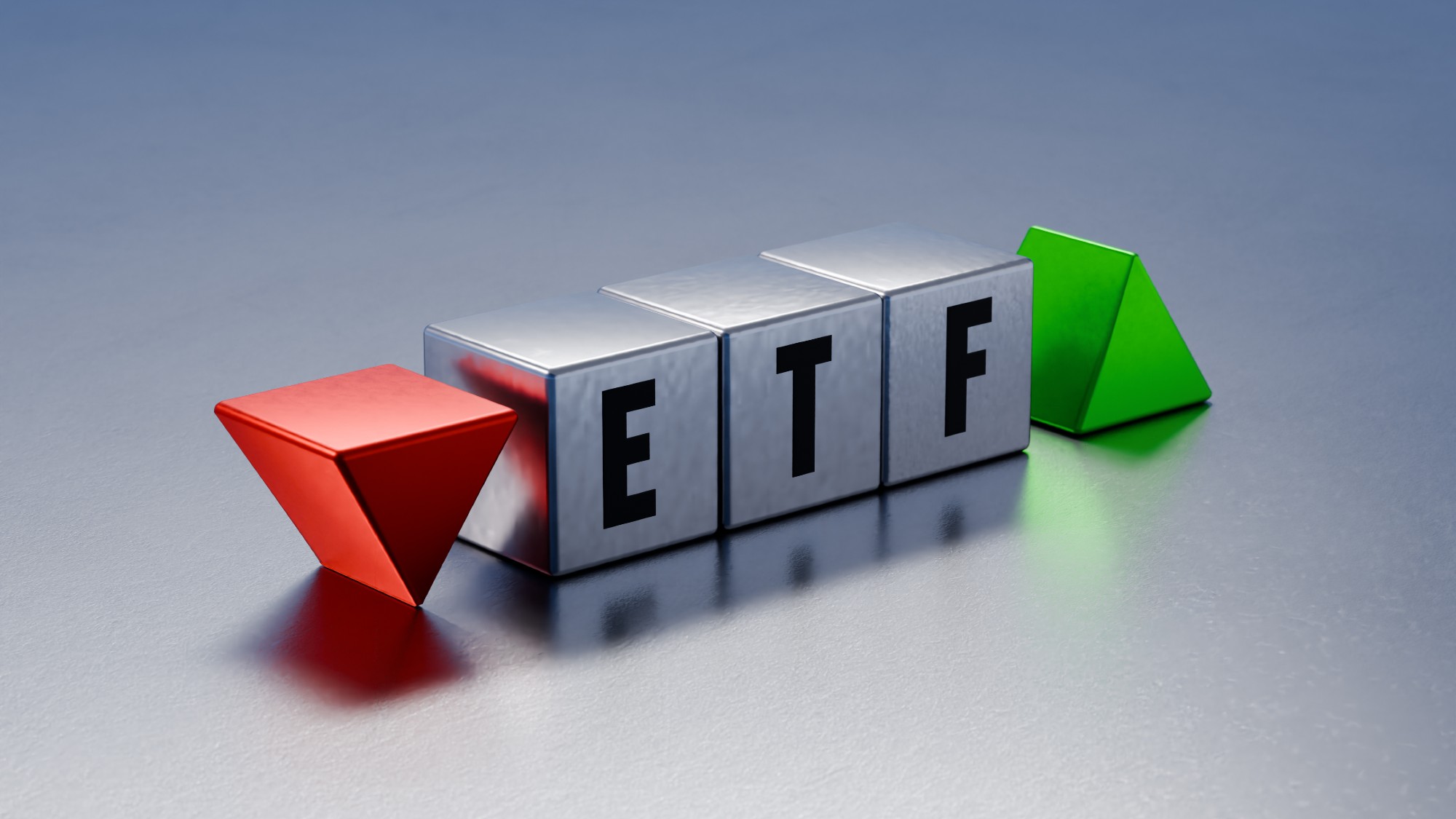How to invest in gold
As inflation remains high, many see gold as a safe haven for their money

A free daily email with the biggest news stories of the day – and the best features from TheWeek.com
You are now subscribed
Your newsletter sign-up was successful
High inflation and stock market volatility have attracted many investors to gold.
The precious metal’s value and performance is uncorrelated to other assets, explained MoneyWeek, and it tends to hold its worth when inflation rises, “making gold particularly attractive in the current environment”.
The gold price hit a record high in March 2023 after passing the $2,000 per ounce mark. Gold’s safe haven properties have come to the fore amid widespread market uncertainly, said Proactive Investors, “following Silicon Valley Bank’s collapse and Credit Suisse’s pending takeover by rival UBS”.
The Week
Escape your echo chamber. Get the facts behind the news, plus analysis from multiple perspectives.

Sign up for The Week's Free Newsletters
From our morning news briefing to a weekly Good News Newsletter, get the best of The Week delivered directly to your inbox.
From our morning news briefing to a weekly Good News Newsletter, get the best of The Week delivered directly to your inbox.
Even before that, there was a near 26% annual increase in the volume of gold investments during 2022, according to The Royal Mint, “driven by the increasing investment appeal of the asset class as a potential means to protect portfolios in volatile markets”.
Here is how to invest in gold and the risks to consider.
Why invest in gold?
Gold is considered a safe haven asset, said MoneyWeek, because it has historically held its value during times of economic uncertainty and market volatility.
The argument is that gold is a “good hedge against inflation” because as demand for gold rises in inflationary periods, gold prices can rise as well, said Forbes Advisor.
A free daily email with the biggest news stories of the day – and the best features from TheWeek.com
Over the past 20 years, annual UK inflation has averaged 3%. Over the same period, the price of gold has increased by an average of 10% per year, Forbes Advisor explained. “Adjusting for the inflation rate of 3%, the ‘real’ value of gold has therefore increased by an average of 7% per year.”
It is also seen as a good way to diversify an investment portfolio as the value of gold doesn’t move in the same way as bonds or stocks, said Which?. “Historically, stock market dips don’t appear to dent gold.”
What drives the gold price?
Supply and demand is a major factor when it comes to the gold price.
There is only a finite amount of the commodity in the world, explained The Royal Mint, “so any increase, decrease, or sudden change to the supply or demand of gold” will affect its price.
In “times of crisis or extreme instability”, high demand can send investors fleeing to the relative safety of gold compared with other assets such as stocks or bonds, said online gold dealer BullionByPost. This will drive up the price.
On the other side of the coin, “reduced demand or improving supply helps ease pressure, and miners accept lower gold prices as a result.”
How to invest in gold
There are many ways to invest in gold, from buying physical gold to investing in shares in gold mines and gold exchange traded funds (ETFs).
Physical gold, known as bullion, can be bought from distributors such as The Royal Mint, as well as specialist gold dealers.
Always check that the dealer is part of the London Bullion Market Association, which sets common standards across the industry and can help avoid scams, MoneyWeek said. “Gold dealers make their money by selling for more than the spot price, so remember to shop around to see if you can find a better deal.”
Rather than bars, you could also buy gold coins from The Royal Mint, said Forbes Advisor. The smallest coins currently sold are the 1/10 ounce Britannia coin and the quarter Sovereign coin, which cost around £190 and £130, respectively, in February 2023.
“Both coins are legal tender in the UK,” Forbes Advisor explained, so there is no capital gains tax or VAT to pay for UK residents.
Gold investment funds can be a good alternative to buying physical gold, said Which?, “if you think the latter may be too much hassle, or you’re only investing in gold in the short term”.
This method can be cheaper, the consumer watchdog said, as you don’t have to buy whole bars or coins, or pay for storage.
You can invest in gold using ETFs or exchange traded commodities (ETCs) through an investing platform, but there may also be trading and fund fees to pay.
Another way to invest indirectly in gold is to buy shares in companies that mine, refine and trade gold, Forbes Advisor added.
However, while the prices of mining company shares correlate to gold prices, “their share prices are also impacted by other fundamentals such as profitability, geopolitical risks, and environmental issues.”
Are there downsides?
As with any investment, there are risks to investing in gold.
The price could drop in the time you hold the gold, known as market risk, said Physical Gold. “This becomes less likely over the medium term, as any market volatility is ironed out.”
Additionally, the commodity does not provide any regular income, added the World Gold Council, whereas other asset classes, such as bonds, property, or even equities, generate coupons, dividends, and rents. This means that for investors to profit from gold, “its price must increase.”
Marc Shoffman is an award-winning freelance journalist, specialising in business, property and personal finance. He has a master’s degree in financial journalism from City University and has previously written for FTAdviser, ThisIsMoney, The Mail on Sunday and MoneyWeek.
Marc Shoffman is an NCTJ-qualified award-winning freelance journalist, specialising in business, property and personal finance. He has a BA in multimedia journalism from Bournemouth University and a master’s in financial journalism from City University, London. His career began at FT Business trade publication Financial Adviser, during the 2008 banking crash. In 2013, he moved to MailOnline’s personal finance section This is Money, where he covered topics ranging from mortgages and pensions to investments and even a bit of Bitcoin. Since going freelance in 2016, his work has appeared in MoneyWeek, The Times, The Mail on Sunday and on the i news site.
-
 The environmental cost of GLP-1s
The environmental cost of GLP-1sThe explainer Producing the drugs is a dirty process
-
 Greenland’s capital becomes ground zero for the country’s diplomatic straits
Greenland’s capital becomes ground zero for the country’s diplomatic straitsIN THE SPOTLIGHT A flurry of new consular activity in Nuuk shows how important Greenland has become to Europeans’ anxiety about American imperialism
-
 ‘This is something that happens all too often’
‘This is something that happens all too often’Instant Opinion Opinion, comment and editorials of the day
-
 Received a windfall? Here is what to do next.
Received a windfall? Here is what to do next.The Explainer Avoid falling prey to ‘Sudden Wealth Syndrome’
-
 How to invest in the artificial intelligence boom
How to invest in the artificial intelligence boomThe Explainer Artificial intelligence is the biggest trend in technology, but there are fears that companies are overvalued
-
 What’s the difference between a bull market and bear market?
What’s the difference between a bull market and bear market?The Explainer How to tell if the market is soaring or slumping.
-
 Is it a good investment to buy a house?
Is it a good investment to buy a house?The Explainer Less young people are buying homes, opting to rent and invest in the stock market instead
-
 What is day trading and how risky is it?
What is day trading and how risky is it?the explainer It may be exciting, but the odds are long and the risks high
-
 What to know about investing in ETFs
What to know about investing in ETFsThe Explainer Exchange-traded funds can be a great choice for beginners
-
 Retail investors drive a flurry of IPOs
Retail investors drive a flurry of IPOsFeature After years of slowness, companies like Klarna and Gemini are reviving the IPO market
-
 Is hands-off investing the way to go?
Is hands-off investing the way to go?The Explainer In many cases, your money might be better off left alone